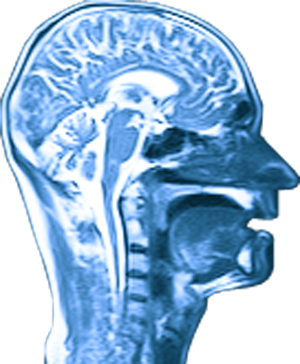Phonetics in Scotland
At least since the days of Alexander Graham Bell, phonetic research has been at home in Scotland. The academic subject was established here shortly after the Second World War, when a Phonetics department was founded at Edinburgh, and lecturers in Phonetics were appointed at the University of Glasgow. Since then, substantial institutional expansion and decades of extensive collaboration among phoneticians across Scotland have led to important developments in clinical, technological, and pure Phonetics research. This resource is the result of an original collaboration across phoneticians working in Scotland, who also formed the Scottish Consortium to host the 18th International Congress of Phonetic Sciences (ICPhS2015) in Glasgow, 10-14 August 2015.
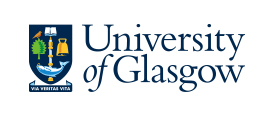 Phonetics at the University of Glasgow is taught to undergraduates and postgraduates through courses in English Language and Linguistics, in the School of Critical Studies. We teach segmental and suprasegmental phonetics in First and Second Year, and then provide an introduction to articulatory, auditory and acoustic phonetics at Third Year. Fourth Year and Masters students can carry out independent research in phonetics (recent dissertations include studies into the intelligibility of sung vowels, ultrasound analysis of Swedish Viby /i/, and /s/ in transgender speakers in Glasgow). Main teaching staff are Clara Cohen, Rachel Smith and Jane Stuart-Smith. In recent years we have been helped by Claire Timmins and Eleanor Lawson, and by members of our postgraduate group.
Phonetics at the University of Glasgow is taught to undergraduates and postgraduates through courses in English Language and Linguistics, in the School of Critical Studies. We teach segmental and suprasegmental phonetics in First and Second Year, and then provide an introduction to articulatory, auditory and acoustic phonetics at Third Year. Fourth Year and Masters students can carry out independent research in phonetics (recent dissertations include studies into the intelligibility of sung vowels, ultrasound analysis of Swedish Viby /i/, and /s/ in transgender speakers in Glasgow). Main teaching staff are Clara Cohen, Rachel Smith and Jane Stuart-Smith. In recent years we have been helped by Claire Timmins and Eleanor Lawson, and by members of our postgraduate group.
 Research and teaching in Phonetics is centred at the Glasgow University Laboratory of Phonetics (GULP), which provides first-class facilities for acoustic phonetic analysis, as well as a new ultrasound tongue imaging facility, and an IAC sound-proofed recording studio. Our research ranges from speech production, especially social/regional/ethnic accent variation, to speech perception, and prosody. A strong theme across our work is our interest in social and psychological factors, and how they relate to Phonetics. Recent and current funded projects include: timing in accents of English; the influence of the broadcast media on speech; colour/voice synaesthesia; real-time change in Glaswegian English over the twentieth century; cerebral processing and phonetic convergence. GULP has a regular ‘lab lunch’ seminar series, which includes colleagues from Celtic and Gaelic, Computing Science, Music, and Psychology, and to which interested visitors are warmly invited. Researchers interested in visiting GULP should contact Prof. Jane Stuart-Smith (Jane.Stuart-Smith@glasgow.ac.uk)
Research and teaching in Phonetics is centred at the Glasgow University Laboratory of Phonetics (GULP), which provides first-class facilities for acoustic phonetic analysis, as well as a new ultrasound tongue imaging facility, and an IAC sound-proofed recording studio. Our research ranges from speech production, especially social/regional/ethnic accent variation, to speech perception, and prosody. A strong theme across our work is our interest in social and psychological factors, and how they relate to Phonetics. Recent and current funded projects include: timing in accents of English; the influence of the broadcast media on speech; colour/voice synaesthesia; real-time change in Glaswegian English over the twentieth century; cerebral processing and phonetic convergence. GULP has a regular ‘lab lunch’ seminar series, which includes colleagues from Celtic and Gaelic, Computing Science, Music, and Psychology, and to which interested visitors are warmly invited. Researchers interested in visiting GULP should contact Prof. Jane Stuart-Smith (Jane.Stuart-Smith@glasgow.ac.uk)
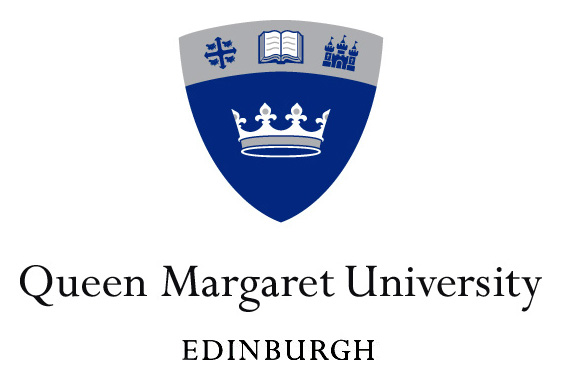 Speech and Hearing Sciences at Queen Margaret University Edinburgh is headed by Professor Janet Beck, one of the example speakers on this website. The Division is primarily vocational in its teaching, offering courses leading to professional registration in Speech and Language Therapy at undergraduate (BSc Hons) and postgraduate (PGdip/MSc) levels and in Audiology at postgraduate level (PGDip/MSc), together with other professionally-oriented courses. Phonetics teaching focuses on transcription and production skills, using both the IPA and extended IPA, with the aim of developing skills in the recording of child and adult pathological speech as part of the diagnostic and treatment processes, as well as contributing to an understanding of phonetic theory more generally. Traditional face-to-face phonetic teaching methods are used alongside instrumental methods such as ultrasound tongue imaging, lip video, and electropalatography, and other modules in speech and hearing sciences on a range of other topics. Graduates from any undergraduate degree or school-leavers interested in Speech and Language Therapy, or Speech and Language Therapists interested in instrumental techniques such as Ultrasound Tongue Imaging can find more information here.
Speech and Hearing Sciences at Queen Margaret University Edinburgh is headed by Professor Janet Beck, one of the example speakers on this website. The Division is primarily vocational in its teaching, offering courses leading to professional registration in Speech and Language Therapy at undergraduate (BSc Hons) and postgraduate (PGdip/MSc) levels and in Audiology at postgraduate level (PGDip/MSc), together with other professionally-oriented courses. Phonetics teaching focuses on transcription and production skills, using both the IPA and extended IPA, with the aim of developing skills in the recording of child and adult pathological speech as part of the diagnostic and treatment processes, as well as contributing to an understanding of phonetic theory more generally. Traditional face-to-face phonetic teaching methods are used alongside instrumental methods such as ultrasound tongue imaging, lip video, and electropalatography, and other modules in speech and hearing sciences on a range of other topics. Graduates from any undergraduate degree or school-leavers interested in Speech and Language Therapy, or Speech and Language Therapists interested in instrumental techniques such as Ultrasound Tongue Imaging can find more information here.
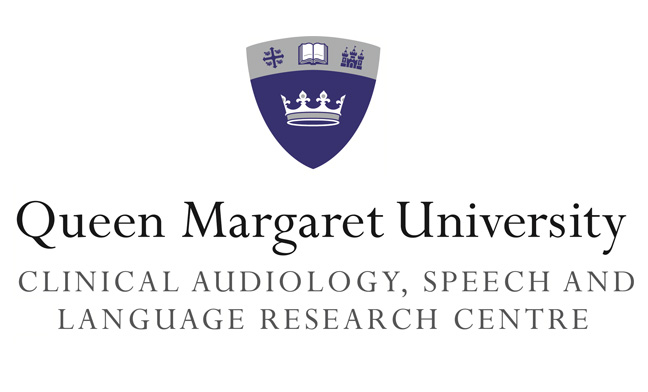 Clinical Audiology, Speech and Language (CASL) Research Centre, Queen Margaret University, is headed by Professor James M Scobbie. The Centre promotes both pure and applied research into speech production, perception and hearing, language and non-verbal communication in typical language users and in populations or individuals with one or more of a wide variety of speech language and communication disorders. Its particular focus is on the instrumental analysis of speech, using sophisticated technology such as Electropalatography (EPG), Electromagnetic Articulography (EMA), Ultrasound Tongue Imaging (UTI), and other computerized equipment for assessing, treating and recording speech and other forms of communication. The Centre aims to become established as a leading facility for quantitative clinical phonetics. We are also particularly interested in linguistic topics relevant to Scotland. Our world-class speech production facilities are available to external research and knowledge exchange collaborators and are among the most extensive in the UK.
Clinical Audiology, Speech and Language (CASL) Research Centre, Queen Margaret University, is headed by Professor James M Scobbie. The Centre promotes both pure and applied research into speech production, perception and hearing, language and non-verbal communication in typical language users and in populations or individuals with one or more of a wide variety of speech language and communication disorders. Its particular focus is on the instrumental analysis of speech, using sophisticated technology such as Electropalatography (EPG), Electromagnetic Articulography (EMA), Ultrasound Tongue Imaging (UTI), and other computerized equipment for assessing, treating and recording speech and other forms of communication. The Centre aims to become established as a leading facility for quantitative clinical phonetics. We are also particularly interested in linguistic topics relevant to Scotland. Our world-class speech production facilities are available to external research and knowledge exchange collaborators and are among the most extensive in the UK.
We are close partners with the QMU spin-out company Articulate Instruments Ltd, with the Royal Hospital for Sick Children in Edinburgh, English Language and Linguistics at the University of Glasgow, and with both the Centre for Speech Technology Research (CSTR) and the department of Linguistics and English Language (LEL) at Edinburgh University (especially through our joint Edinburgh Speech Production Facility).
Our PhD students have gone on to careers in academia, industry and health professions, and we host a number of research projects funded by charities or the UK Research Councils (ESRC, EPSRC, MRC). To discuss research visits, collaborations, doctoral or post-doctoral study and possible projects, please contact Professor Jim Scobbie (jscobbie@qmu.ac.uk)
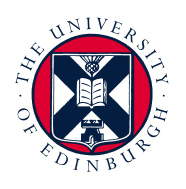 At the University of Edinburgh, Phonetics is taught within the Linguistics & English Language subject area in the School of Philosophy, Psychology & Language Sciences. Our staff members combine a broad range of expertise and interests relating to Phonetics, ranging from acoustic and articulatory phonetics, sociophonetics, phonetic typology, phonological dialectology, speech recognition and speech synthesis, speech perception, laboratory phonology, historical phonology, developmental phonology to formal phonological theory. We regularly offer courses in these disciplines at undergraduate and postgraduate levels, and supervise PhD and MSc dissertations in these areas. Students interested in applying to our programmes can access more details here.
At the University of Edinburgh, Phonetics is taught within the Linguistics & English Language subject area in the School of Philosophy, Psychology & Language Sciences. Our staff members combine a broad range of expertise and interests relating to Phonetics, ranging from acoustic and articulatory phonetics, sociophonetics, phonetic typology, phonological dialectology, speech recognition and speech synthesis, speech perception, laboratory phonology, historical phonology, developmental phonology to formal phonological theory. We regularly offer courses in these disciplines at undergraduate and postgraduate levels, and supervise PhD and MSc dissertations in these areas. Students interested in applying to our programmes can access more details here.
Our laboratory facilities are first-class, and include electromagnetic articulographs (in our joint Edinburgh Speech Production Facility) eye-trackers, sound studios, sound treated perception booths, EEG, and electro-palatography. For more information, please contact Professor Alice Turk (turk@ling.ed.ac.uk).
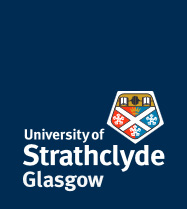 At the University of Strathclyde, Phonetics is taught within the Speech and Language Pathology subject area. This is housed in the School of Psychological Sciences and Health in the Faculty of Humanities and Social Sciences, along with courses on Modern Languages and Education. At undergraduate level, we offer a 4-year BSc (Hons) in Speech and Language Pathology. At postgraduate level we offer MPhil and PhD degrees aligned with our research fields. Our Phonetics teaching is transcription and production based, using the IPA and Extended IPA (alongside instrumental analysis). Traditional Phonetics training is provided, developing skills in understanding and transcribing child and adult disordered speech.
At the University of Strathclyde, Phonetics is taught within the Speech and Language Pathology subject area. This is housed in the School of Psychological Sciences and Health in the Faculty of Humanities and Social Sciences, along with courses on Modern Languages and Education. At undergraduate level, we offer a 4-year BSc (Hons) in Speech and Language Pathology. At postgraduate level we offer MPhil and PhD degrees aligned with our research fields. Our Phonetics teaching is transcription and production based, using the IPA and Extended IPA (alongside instrumental analysis). Traditional Phonetics training is provided, developing skills in understanding and transcribing child and adult disordered speech.
Phoneticians include Joanne Cleland, Anja Lowit and Claire Timmins as part of a group of staff specialised in clinical speech and language analysis. Research areas include prosody, bilingualism, developmental phonology, motor speech disorders, sociophonetics, articulation in Down’s syndrome, and voice disorders. In addition to fundamental research into the nature and management of speech disorders, investigations focus on the validation of new phonetic measurement techniques for clinical use. We have close links with Glasgow Dental School, English Language and Linguistics at Glasgow, and practitioners within the NHS.
More information about studying Speech and Language Pathology at Strathclyde (undergraduate or postgraduate) can found here.
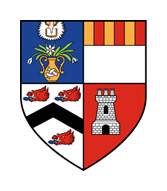 The University of Aberdeen offers undergraduate and postgraduate modules in phonetics and phonology as part of our degree programmes in Languages and Linguistics, in the School of Language, Literature, Music, and Visual Culture. Former members of staff working on phonetics at Aberdeen include J. Derrick McClure, Carmen Llamas and Dominic Watt. Currently, William Barras teaches topics in Phonetics and Phonology.
The University of Aberdeen offers undergraduate and postgraduate modules in phonetics and phonology as part of our degree programmes in Languages and Linguistics, in the School of Language, Literature, Music, and Visual Culture. Former members of staff working on phonetics at Aberdeen include J. Derrick McClure, Carmen Llamas and Dominic Watt. Currently, William Barras teaches topics in Phonetics and Phonology.
We have a dedicated Phonetics lab and recording studio, which is used by students during their taught courses, as well as by research students working on dissertations and extended projects. We are particularly focused on local issues of phonetic variation, and on dialectological surveys of Scottish speech. The Fisher speak project, which documented lexical attrition in the dialects of Scottish fishing communities, has generated a substantial corpus of recorded dialect. Recent student research has included work on the phonetics of the local Doric dialect, as well as on the Scottish Vowel Length Rule in the North East of Scotland.
For further information about doctoral or post-doctoral study and possible collaborative research projects, please contact Dr William Barras (w.s.barras@abdn.ac.uk).
